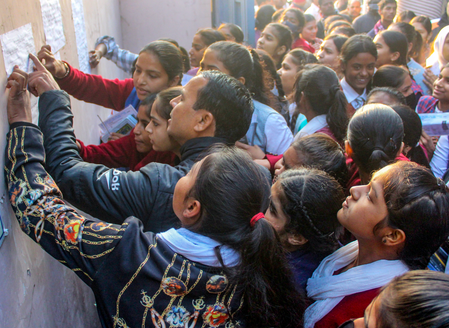
New Delhi, June 19 (IANS) For decades, India’s education system has been driven by an obsession with marks and standardised examinations. From board exams to competitive entrance tests, academic performance is measured almost exclusively through a numerical lens. While this has produced a large population of degree-holders, it has not necessarily translated into a skilled and employable workforce.
As India strides into an era of technological disruption, economic transformation, and global competition, the time has come to shift our national focus from mere academic scores to practical skills and real-world capabilities.
The Problem with Marks-Driven Learning
In most Indian schools and colleges, student performance is measured by how well they can reproduce textbook knowledge in a written exam. This system rewards rote memorization over conceptual understanding, speed over depth, and short-term cramming over long-term learning. The consequences are far-reaching.
• Limited Creativity and Critical Thinking: The pressure to score high often curtails creativity. Students are discouraged from questioning, debating, or exploring alternative solutions. In a marks-centric system, there is little room for curiosity or divergent thinking.
• Mental Health Concerns: The high stakes attached to board exams, entrance tests, and university cut-offs have made academic performance a source of stress and anxiety for millions of students. Depression, burnout, and even suicides linked to exam results are tragically common.
• Employability Crisis: A 2023 report by the Confederation of Indian Industry (CII) found that nearly 50 per cent of Indian graduates are not employable in industry due to lack of skills. Despite high academic scores, many students fail to meet basic requirements in communication, problem-solving, or digital literacy.
• Inequity in Opportunity: A rigid exam-based system tends to favor those with access to coaching centers, private tuitions, and supportive environments. Students from under- privileged backgrounds often fall behind, not due to a lack of intelligence or ambition, but because of structural disadvantages.
Global Trends: Skills Over Scores
Many leading economies have already begun reorienting their education systems to focus on skills. Finland, consistently ranked among the top in global education indices, emphasizes student well-being, creativity, and collaboration rather than standardized testing. In Germany, the dual education system integrates classroom learning with hands-on vocational training, making graduates highly employable.
Even in India, the National Education Policy (NEP) 2020 has acknowledged the need to transition towards holistic, skills-based education. The policy emphasizes critical thinking, experiential learning, and flexibility in subject choices. However, implementation at a scale remains a challenge.
What Skills Should Indian Education Prioritize?
To align with the future of work, the Indian education system must prioritize a diverse set of cognitive, technical, and socio-emotional skills:
• Digital and Technological Literacy: Foundational knowledge in computing, coding, and digital tools is essential.
• Communication and Collaboration: The ability to express ideas clearly, work in teams, and resolve conflicts.
• Critical Thinking and Problem Solving: Analyze information, think independently, and devise practical solutions.
• Creativity and Innovation: Encourage experimentation and original thinking across disciplines.
• Emotional Intelligence: Empathy, resilience, and adaptability are key to navigating the modern world.
• Vocational and Entrepreneurial Skills: Practical training in trades and entrepreneurship can open up alternative career paths.
How to Make the Shift: Concrete Steps
• Curriculum Reform: Boards must reduce content overload and include modules on skill-building, coding, and design thinking.
• Assessment Redesign: Move towards application-based assessments, open-book exams, and portfolio evaluations.
• Teacher Training: Equip teachers to deliver experiential, project-based, and interdisciplinary education.
• Industry-Academia Partnerships: Offer students internships, workshops, and real-world exposure through collaborations.
• Technology Integration: Use EdTech platforms to provide accessible, skill-focused education at scale.
• Recognition of Diverse Talents: Broaden entrance and scholarship criteria to reward innovation and creativity.
The Role of Parents and Society
Education reforms can only succeed if there is a collective change in mindset. Indian society has traditionally equated marks with success and failure. This attitude needs to evolve. Parents must recognise that a child scoring 70 per cent but excelling in communication and creativity may have greater potential than a 95 per cent scorer with no practical skills.
Schools should celebrate diverse talents and redefine what constitutes ”success”.
Media and public discourse can also play a role by highlighting role models who succeeded not because of marks, but because of skills — entrepreneurs, artists, coders, athletes, and social change-makers.
India stands at a crucial juncture. With the world’s largest youth population and a rapidly digitizing economy, the opportunity to become a global knowledge leader is within reach. But this vision cannot be achieved through mark sheets alone.
It requires an education system that nurtures thinkers, builders, creators, and leaders. By shifting from a marks-driven to skills-driven paradigm, India can unlock the full potential of its young minds — building not just careers, but a stronger, more resilient, and more inclusive nation.
(The writer is a PhD graduate from IIT Kharagpur. Views expressed above are his own)
–IANS
scor/
